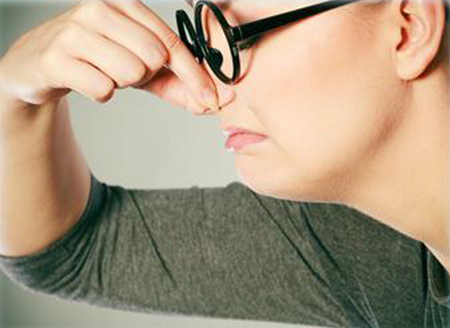Discharge information after Nosebleeds (Epistaxis)
Who is this information for?
This information is for patients, families and carers following a nosebleed (epistaxis).
What is thefirst aid for a nosebleed?
With the right first aid, most nosebleeds will stop on their own.

- DO: Gently blow your nose to get rid ofSome of the clots that have formed inside your nostrils.
- DO: Sit up and lean forward.
- DO: Breath through the mouth, allowing the blood to run out (or spit it out) without swallowing it
- DO: Squeeze the soft portion of the nose firmly using your thumb and forefinger.
- DON’T: grip the bony bridge of your nose
- DO: Maintain this pressure for:
- 10-15 minutes(adults)
- 5 minutes (children)
- DON’T: release the pressure every so often to check whether the bleeding has stopped.
- DO: Suck on someice cubes +/-place an ice-pack to the bridge of the nose.
- Not only is this relieving, but it can help the blood vessels constrict and slow the bleeding.
- This step is not necessary, but many people like to do it.
- DO: Rest quietly.
- DO: follow all the steps outlined above, and if your nose continues to bleed, repeat all the steps once more, applying pressure for a total of at least 30 minutes.
How do I manage normal activities after a nosebleed?
- Rest quietly for the next 12-24 hours.
- Do not pick or blow your nose for a week. You can sniff to clear your nose if necessary.
- Avoid strenuous exercise, straining or lifting heavy items for a week.
- Allow food and drinks to cool before eating for a week.
- Use lukewarm water for showers or baths for a week.
- Stop smoking.
- Avoid drinking alcohol.
- Use paracetamol/Panadeine® for pain relief and avoid aspirin.
- If prescribed aspirin®, or other blood thinners (e.g. Warfarin®, Plavix®, Xarelto®, Pradaxa®)discuss this with your health practitioner.
- Use medications as prescribed. Some people with dry skin in their nose may find that ointment or nasal sprays may help.
- If you suffer from nose bleeds due to high blood pressure, visit your health practitioner for monitoring.
What should I expect?
- Nosebleeds may cause minor discomfort.
- Some people may have several nosebleeds over a period of a few days or weeks.
- In the elderly, nosebleeds can come from the back of the nose.
- Sometimes the bleeding is due to an underlying bleeding problem
How can I prevent nosebleeds?
Measures to prevent nosebleeds may include:
- Using a humidifier.
- Drinking plenty of fluids.
- Using an ointment on the affected area (such as Vaseline®, FESS® Nasal Gel).
- Using a saline nasal spray.
- Avoiding strenuous activity or heavy lifting.
- Using headgear when playing sport.
- Avoiding cigarette smoke.

Concerns or questions?
You can contact your ENT Specialist at the Melbourne ENT Group (MEG):
- Phone: 1300- 952-808
- Email: admin@melbentgroup.com.au
- Website: www.melbentgroup.com.au
Your GP is also the best contact for ongoing care and concerns.